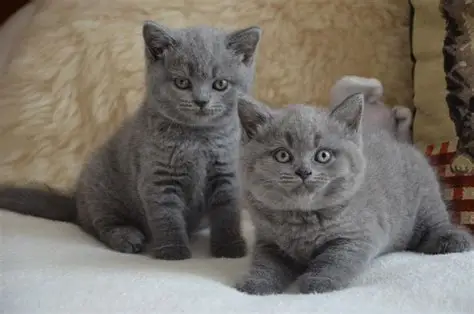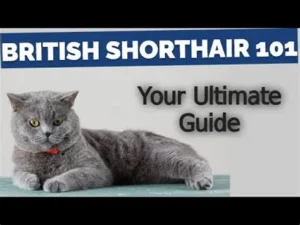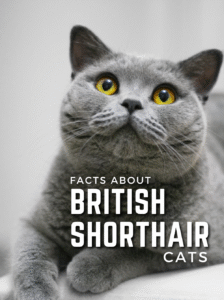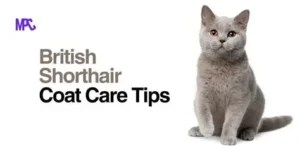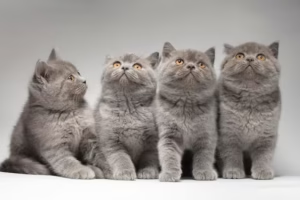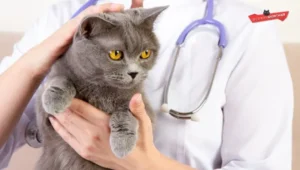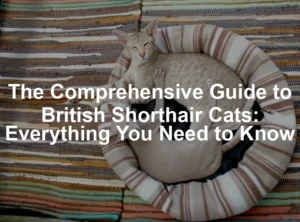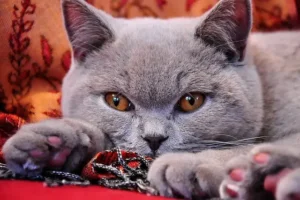How to Find a Good Breeder for British Shorthair Cats
10 Best British Shorthair Breeders a good breeder for British Shorthair cats requires time, research, and due diligence. Here are key tips to ensure you make the best choice:
- Look for Registered Breeders
When searching for a breeder, always check if they are registered with reputable cat breeding associations such as the GCCF (Governing Council of the Cat Fancy) in the UK or TICA (The International Cat Association). These organizations ensure breeders follow proper breeding standards, and their cats are healthy and purebred. - Research Reviews and Testimonials
The best breeders often have positive reviews and testimonials from previous buyers. Check online forums, Facebook groups, or even Google reviews to see if others had good experiences with the breeder. - Visit the Cattery
A reputable breeder will allow you to visit their cattery. It’s vital to see the environment where the kittens are raised. The space should be clean, and the kittens should appear healthy, playful, and well-socialized. - Health Testing
Good breeders will perform health testing on their cats before breeding them. Ask for proof of tests for common hereditary conditions in British Shorthairs, such as hypertrophic cardiomyopathy (HCM), hip dysplasia, and PKD (polycystic kidney disease). - Ask About the Parent Cats
Always inquire about the parent cats’ health, temperament, and pedigree. A responsible breeder will be happy to share this information and provide any relevant documentation. - Check for a Contract
Reputable breeders often have a written contract for the sale of their kittens. This contract may outline health guarantees, spaying/neutering agreements, and return policies if necessary.
Is it Okay to Adopt a British Shorthair Kitten Without Papers?
While adopting a British Shorthair kitten without papers may seem tempting, it comes with some risks. The papers (pedigree) ensure that the kitten is a true purebred British Shorthair and may provide information about its lineage, health history, and genetic background. However, it’s not always a dealbreaker if you decide to adopt a kitten without papers.
- Advantages of Having Papers: Papers verify the kitten’s pedigree and ensure it comes from a registered and reputable breeder. This also guarantees that the kitten meets breed standards and has been raised with proper care.
- Without Papers: Adopting a kitten without papers may still be a viable option, but you should proceed with caution. Without pedigree, you may be unsure of the kitten’s background, including potential health issues.
If you’re not looking to show the cat or breed it, adopting a kitten without papers could still provide you with a loving companion. However, ensure the breeder is reputable and transparent about the kitten’s lineage and health.
What Should I Ask When Adopting a British Shorthair Kitten?
Adopting a British Shorthair kitten is a big commitment, so asking the right questions is essential to ensure you’re bringing home a healthy and well-socialized pet. Here’s a list of key questions to ask:
- What is the kitten’s medical history?
- Has the kitten been vaccinated and dewormed?
- Is the kitten microchipped?
- Can I meet the kitten’s parents?
- What socialization and handling has the kitten received?
- Are there any hereditary health issues in the family line?
- What kind of diet is the kitten currently on?
- Is the kitten litter trained and using a scratching post?
- Has the kitten been checked by a vet?
- What are the breeder’s policies regarding health guarantees or returns?
These questions will help you get a clear picture of the kitten’s health, background, and temperament, ensuring you’re fully prepared to bring them into your home.
What’s the Best Way to Buy a British Shorthair Cat?
Buying a British Shorthair cat involves several important steps to ensure you’re getting a healthy and well-socialized kitten. Here’s the process to follow:
- Research: Begin by researching breeders, adoption centers, and rescue organizations. Look for those with strong reputations and proper registration with breeding associations.
- Visit the Cattery: If possible, visit the cattery where the kitten is raised to see the living conditions. It should be clean, comfortable, and free from any signs of neglect.
- Ask Questions: Don’t hesitate to ask the breeder about the kitten’s health, vaccination status, and temperament. A good breeder will be transparent and answer your questions thoroughly.
- Health Records: Ensure that the breeder provides all relevant health records, including vaccination and deworming history. A responsible breeder will have nothing to hide and will be happy to provide this information.
- Payment and Contract: Ensure you understand the price of the kitten and any deposit or payment terms. A contract should outline your responsibilities as a new owner, as well as any health guarantees. 10 Best British Shorthair Breeders
- Follow-Up: Good breeders often provide follow-up support to ensure your kitten is settling well into its new home. This support can include advice on health, diet, and care.
Is Adopting a British Shorthair Kitten the Same as Buying from a Breeder?
Adopting a British Shorthair kitten and buying from a breeder may seem similar, but they are different processes:
- Adoption typically refers to getting a cat through a rescue organization or animal shelter, where you may find adult cats or kittens in need of homes. Adoption fees usually cover the cost of vaccinations, spaying/neutering, and medical care.
- Buying from a breeder means you are purchasing a kitten directly from a breeder who has intentionally bred the cat. This allows you to choose a kitten based on specific characteristics, such as color and temperament. Breeders usually offer pedigree papers and detailed health histories.
Both options can provide you with a loving companion, but adopting tends to be less expensive, and it’s a wonderful way to give a cat a second chance at a forever home.
How to Choose the Right British Shorthair Kitten for Me?
Choosing the right British Shorthair kitten involves understanding your preferences, lifestyle, and the temperament of the breed. Consider these factors:
- Personality Fit: British Shorthairs are generally calm, affectionate, and independent, but individual kittens can have different temperaments. Some may be more playful, while others may be more reserved. Choose one that aligns with your expectations.
- Color and Coat: British Shorthairs come in a wide variety of colors and patterns, from the iconic blue-gray to black, white, and tabby variations. Choose a coat color that appeals to you, but also remember that the kitten’s personality is more important than its appearance.
- Health Considerations: If you have concerns about specific health conditions like heart issues (HCM) or kidney problems, ensure that the breeder has performed health screenings and can provide a health guarantee.
- Lifestyle Compatibility: British Shorthairs are adaptable and do well in various living situations, but consider whether you have the time and space for a cat, particularly a kitten that will require more attention and training during its first few months.
SEO Entity and Keyword Mapping for gatobritánicofarm.com
GEO (Geographical) Keywords:
- British Shorthair breeders in Texas
- British Shorthair kitten adoption in Spain
- Best British Shorthair cats for sale in Colorado
- Find British Shorthair kittens near Florida
- British Shorthair breeders in the Canada
- Adopt a British Shorthair kitten
- Best breeders for British Shorthair kittens
- How to buy a British Shorthair cat
- Adoption vs buying British Shorthair kittens
- How to choose the right British Shorthair kitten
- Should I adopt a British Shorthair kitten?
- What questions to ask when buying a British Shorthair kitten
- How to find the right breeder for British Shorthairs
- British Shorthair kitten adoption process
- Buying a British Shorthair from a breeder
